Scaling up epidemiological surveillance
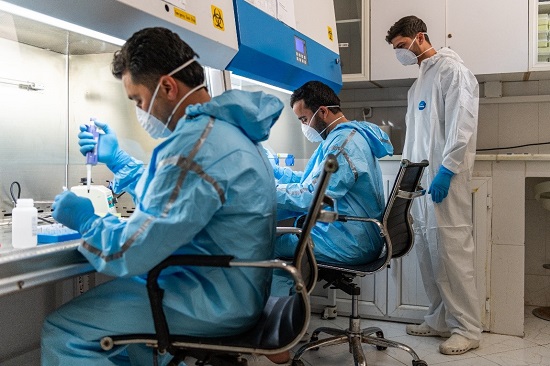 Ahmad Jawad, Sayed Ahmad Zia and Ahmad Ramiz extract swab samples prior to testing them for COVID-19 at the Herat Regional Reference Laboratory
Ahmad Jawad, Sayed Ahmad Zia and Ahmad Ramiz extract swab samples prior to testing them for COVID-19 at the Herat Regional Reference Laboratory
The health and socioeconomic impacts of COVID-19 have undermined previously achieved gains in upgrading Afghanistan’s health system. The pandemic challenged health facilities’ capacity to treat COVID-19 patients while maintaining other basic health services, especially in hard-to-reach and active-conflict areas. EU funding is supporting WHO’s efforts in scaling up Afghanistan’s epidemiological surveillance and capacity to quickly detect and mitigate impacts of COVID-19 and other future health emergencies.
Making testing accessible
The expansion of the laboratory network has been particularly beneficial for enabling people to get quickly tested without having to travel for long distances or to other provinces. This has significantly improved access to health for some of the most marginalised and vulnerable groups who may otherwise not have the means or ability to travel to other parts of the country for testing.
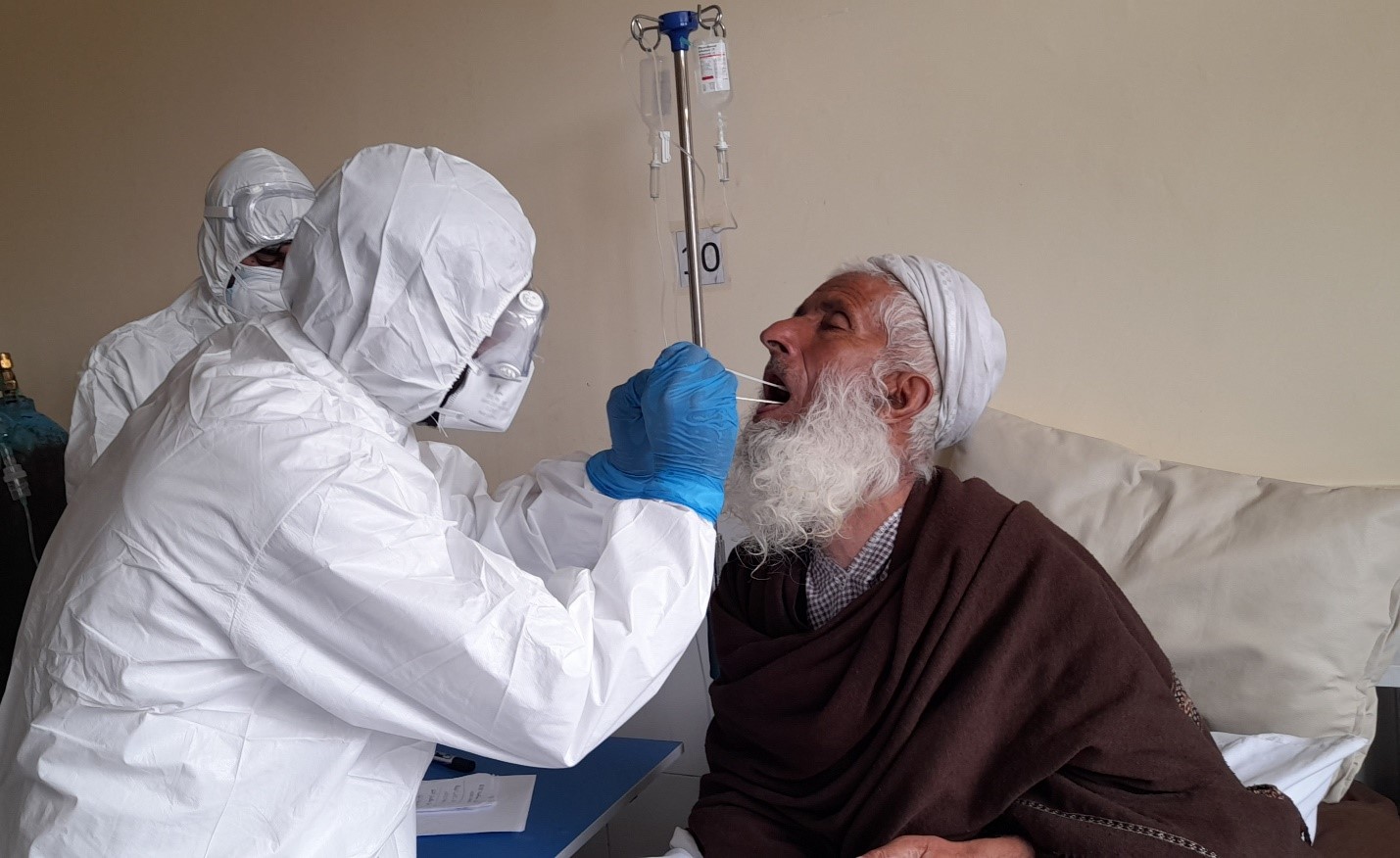 Daad Mohammad visiting the COVID-19 confirmatory laboratory in Wardak province to give a sample for testing
Daad Mohammad visiting the COVID-19 confirmatory laboratory in Wardak province to give a sample for testing
Daad Mohammad is from Wardak province and has been experiencing COVID-19 symptoms. “I am happy to be able to come to the Wardak lab for testing. A year back, things were very different for us here in Wardak province,” he said.
Last year, one of Daad’s relatives was suspected of having COVID-19. To confirm the diagnosis, a sample was collected and sent to Kabul for testing. It took 2 weeks to get back the results from Kabul during which time 6 more family members became infected with COVID-19. “Now, we can get tested and have the result within a few hours and apply proper preventive measures if a person is positive,” he continued assuredly.
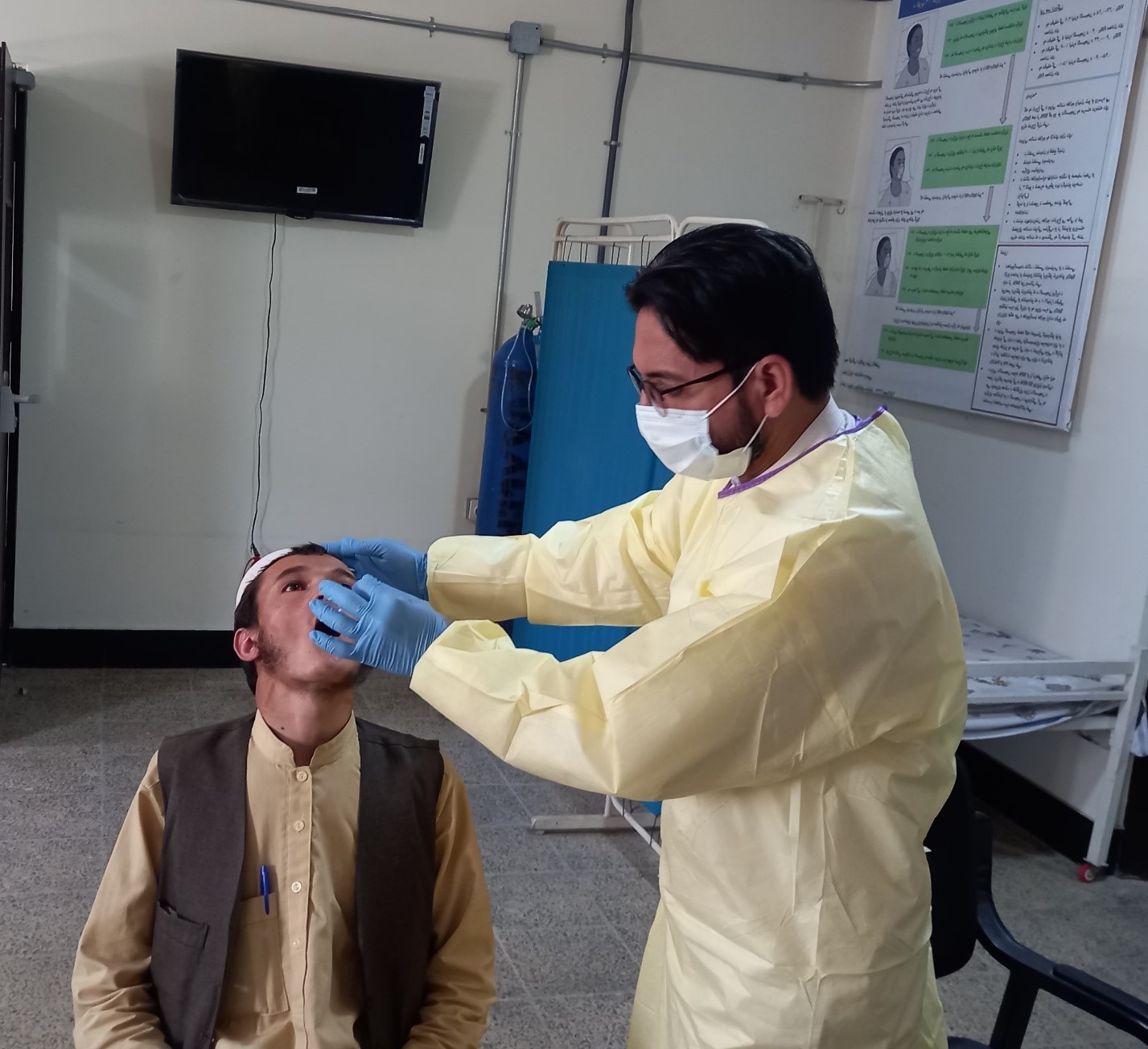 Muhammad Niaz giving a sample for COVID-19 testing at the confirmatory laboratory in Kunduz province
Muhammad Niaz giving a sample for COVID-19 testing at the confirmatory laboratory in Kunduz province
Muhammad Niaz from Kunduz province is also glad he does not need to travel elsewhere to get tested. “I am very happy and satisfied by the service provided by the lab and by the staff’s proficiency. I feel very fortune that our samples are tested here in Kunduz and we don’t need to wait for days to receive the result,” he said.
Supporting health workers through training
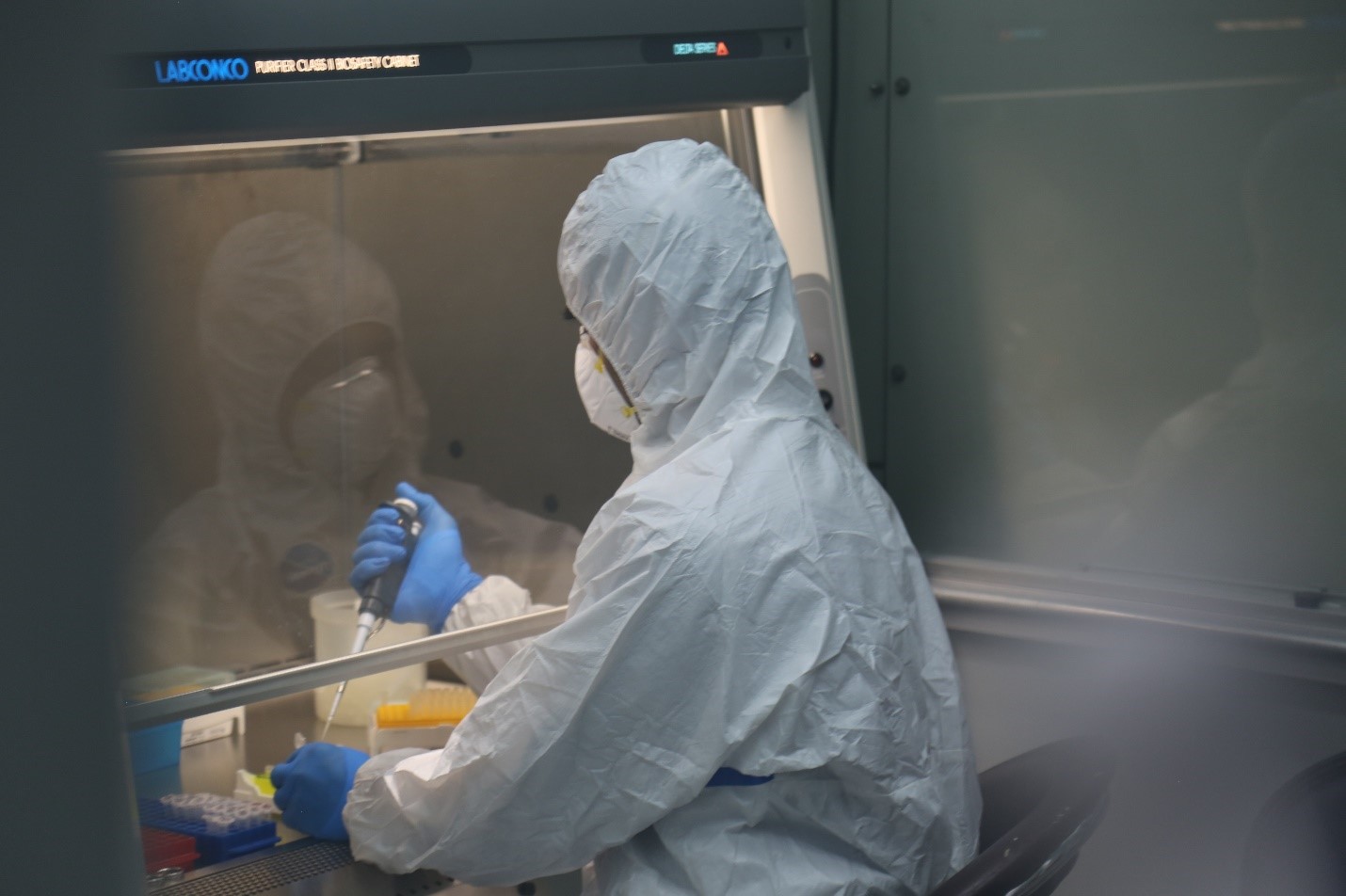 Mr Faridullah Safi, performs a COVID-19 confirmatory test at the Kabul Central Laboratory
Mr Faridullah Safi, performs a COVID-19 confirmatory test at the Kabul Central Laboratory
Mr Faridullah Safi is a virologist and Head of Surveillance Department at the Kabul Central Laboratory. He has been working at the laboratory for the past 13 years and was among those who received the EU-funded training delivered by WHO for the pandemic response.
“Throughout my career, I have received multiple trainings by WHO. After the COVID-19 pandemic, I was trained as a trainer and now I regularly train our provincial surveillance teams to extract samples and properly send them to the central laboratory,” said Mr Safi.
Currently the central laboratory processes around 150 samples daily and a large number of these samples are received from surveillance teams in the provinces.
The EU-supported training of laboratory technicians has been crucial in quickly enhancing human resource availability to expand COVID-19 testing and ensure the establishment of laboratories is backed with competent staff.
Long-term goals
WHO continues to closely collaborate with the Ministry of Public Health and partners to strengthen COVID-19 surveillance through establishing and equipping laboratories across Afghanistan to ensure ease of access for all people, even those in hard-to-reach and remote areas.
The investment in laboratories will have long-term payoffs beyond COVID-19 as they will contribute to improving access to tertiary health care at the provincial level.
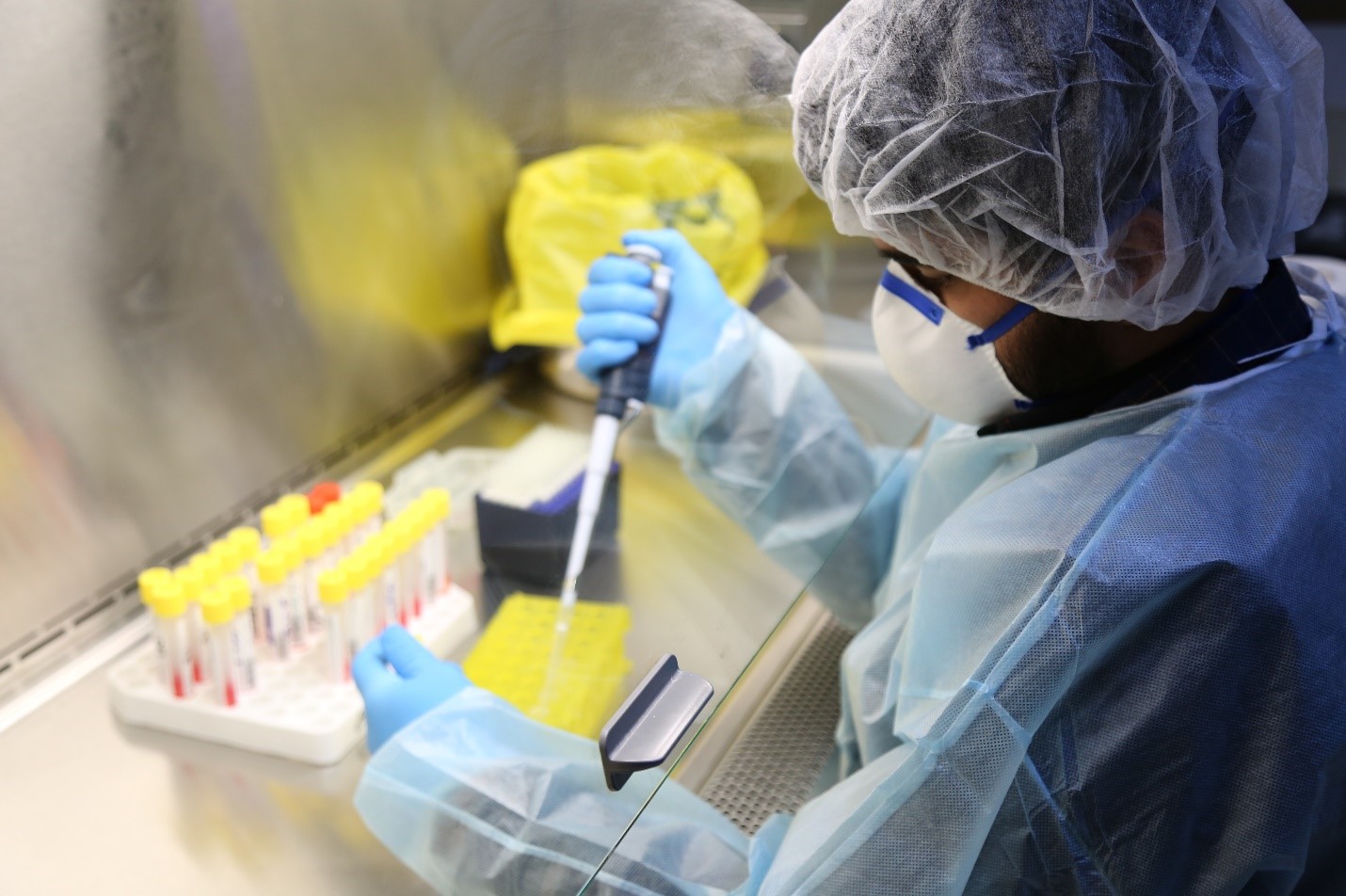 A virologist busy performing COVID-19 confirmatory test
A virologist busy performing COVID-19 confirmatory test


